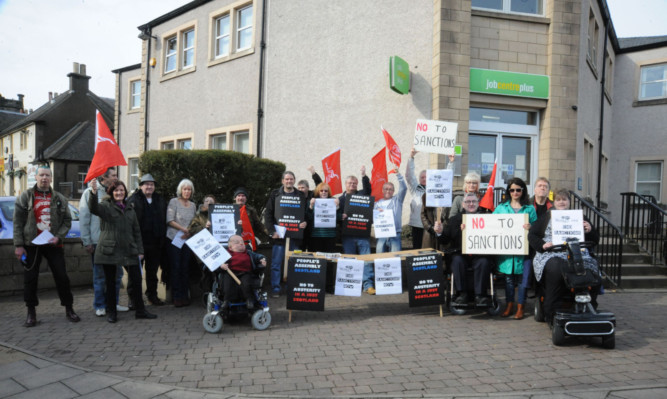Welfare sanctions are driving children into poverty and causing damage to adults’ mental health, Fife Council has heard.
Councillors from across the chamber talked of harrowing experiences they had heard from their constituents, including stories of people who had contemplated suicide because of their benefits being stopped.
They added that children are also being unfairly affected and many are going hungry because of sanctions imposed by the UK Government.
A motion supporting the idea of suspending sanctions which affect children or anyone with a mental illness was passed with a unanimous vote at the meeting of the full council.
Leader of the council’s SNP group, Peter Grant, who proposed the motion, said: “There is no disagreement that it is unfair that people who are unable to work because of their mental health can be sanctioned by the Department for Work and Pensions (DWP).
“The DWP tell us that if a healthy person is sanctioned then their health will suffer. How much worse is the impact of a sanction on people who have mental health problems?”
In an emotive and powerful speech to the chamber, Mr Grant talked about constituents who had considered suicide because of unfair sanctions.
He said: “This is not a question of economics or politics, it’s a question of basic humanity. The state is deliberately taking punitive action against people who are ill, knowing their illness will get worse as a result.”
Under DWP rules, welfare recipients who fail to turn up to meetings on time without reasonable explanation face a complete halt on income for a period of usually a few weeks.
However, councillors said constituents had been sanctioned for attending funerals and giving birth, which they said was hugely unfair.
Liberal Democrat councillor Tim Brett told the chamber about his experiences.
“When you speak to people using the food banks, you hear a lot of stories,” he said.
“One of the examples I found to be quite shocking. People in East Neuk have to travel to the jobcentre in Leven. One woman was on the bus there and as it got held up for 10 minutes in roadworks, she was sanctioned.”
The chamber also heard that constituents who successfully appealed against the sanctions weren’t then given the money for the period the sanction had been imposed.
The council’s motion was based on the recommendations of a report by six churches and religious groups published in March.
It was passed with two amendments, one from the Labour administration and another from independent councillor Bryan Poole.
The Labour addition drew attention to the disproportionately high number of sanctions affecting Fifers, while Mr Poole wished to highlight the work made by external organisations to tackle the problem.
Labour councillor Kenny Selbie said: “Many if not all of us here in the chamber have seen the impact of sanctions on local residents. About 13,000 people in Fife have been sanctioned in the last year.
“In too many cases it affects not just the welfare recipient but also their families, and their children.”
There was also support from the Conservatives, who had planned to include an amendment, but scrapped it after hearing from the SNP and Labour.
Councillors hoped the motion would draw the Government’s attention to the issue.
Photo by George McLuskie
